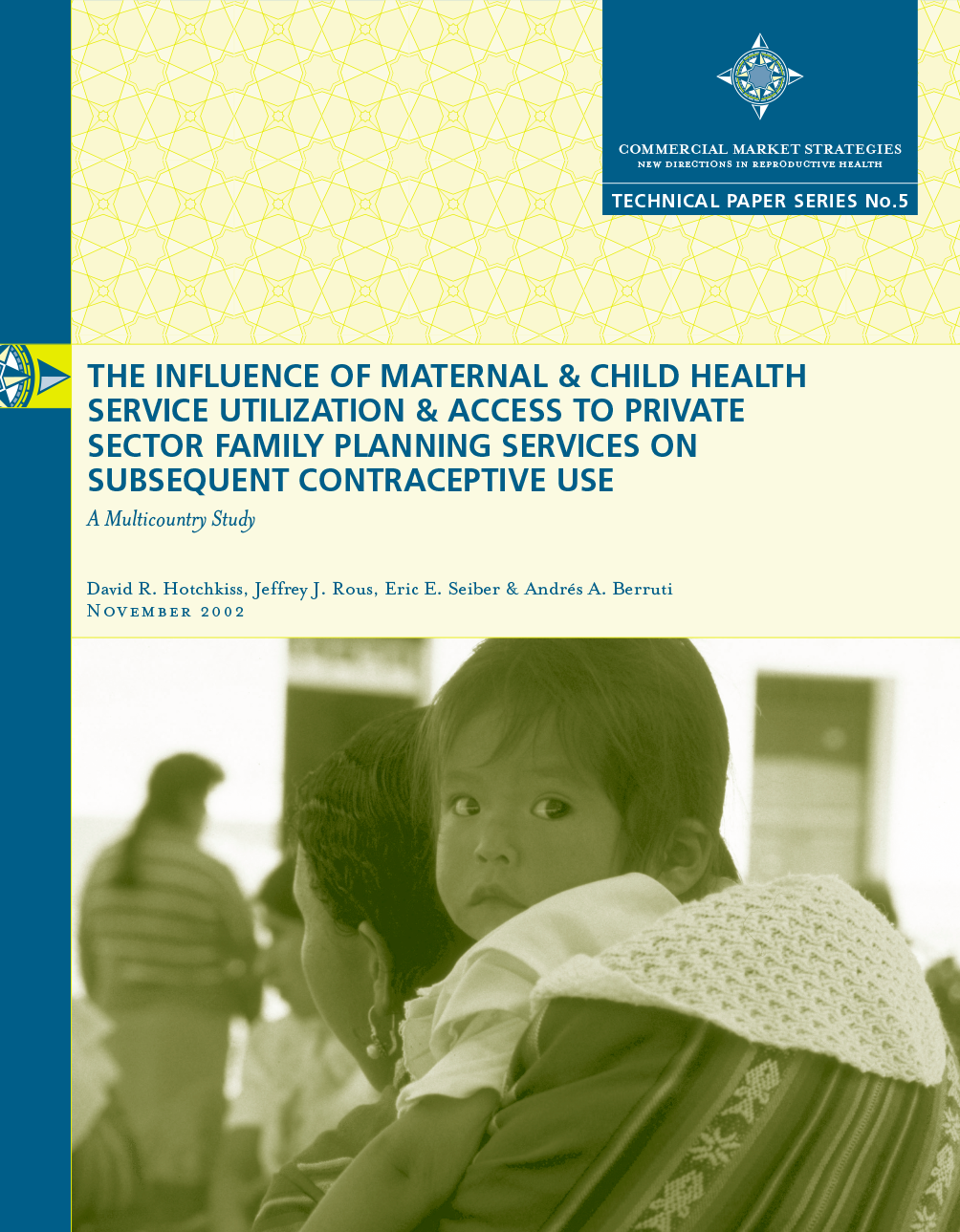
Resource Library
The Economics of Social Marketing: The Case of Mosquito Nets in Tanzania
There is a growing appreciation of the role of the private sector in expanding the use of key health interventions. At the policy level, this has raised questions about how public sector resources can best be used to encourage the private sector in order to achieve public health impact. Social marketing has increasingly been used to distribute public health products in developing countries. The Kilombero and Ulanga Insecticide-Treated Net Project (KINET) project used a social marketing approach in two districts of Tanzania to stimulate the development of the market for insecticide-treated mosquito nets (ITNs) for malaria control. Using evidence from household surveys, focus group discussions and a costing study in the intervention area and a control area, this paper examines two issues: (1) How does social marketing affect the market for ITNs, where this is described in terms of price and coverage levels; and (2) What does the added cost of social marketing "buy" in terms of coverage and equity, compared with an unassisted commercial sector model? It appears that supply improved in both areas, although there was a greater increase in supply in the intervention area. However, the main impact of social marketing on the market for nets was to shift demand in the intervention district, leading to a higher coverage market outcome. While social marketing was more costly per net distributed than the unassisted commercial sector, higher overall levels of coverage were achieved in the social marketing area together with higher coverage of the lowest socioeconomic group, of pregnant women and children under 5 years, and of those living on the periphery of their villages. These findings are interpreted in the context of Tanzania's national plan for scaling up ITNs.
Resource Type :
Country :
Year : 2005-01-15T16:30:00
Language :
Project : SHOPS

Resource Library
The Influence of Maternal and Child Health Service Utilization and Access to Private-Sector Family Planning Services on Subsequent Contraceptive Use: A Multi-country Study
Does utilization of modern MCH services influence the likelihood of subsequent contraceptive use among women in developing country settings? Does access to private-sector family planning services have an impact on contraceptive use? The answers to these questions have important implications for family planning service delivery strategies. However, the available empirical evidence on these issues is inconclusive. This study re-examines the relationship between the intensity of MCH-service use and contraceptive use in five countries, and the relationship between access to private-sector family planning services and contraceptive use in two countries. The study is based on household survey data and data on the supply environment for health and family planning services gathered during the 1990s in Morocco, Tanzania, Bolivia, Guatemala, and Indonesia. The findings indicate a substantial and apparently causal relationship between the intensity of MCH-service utilization and subsequent contraceptive use, and between access to private-sector family planning services and modern contraceptive use. Policy imulations indicate that sizeable increases in contraceptive prevalence might be realized by increasing the coverage and intensity of use of MCH services, and by improving access to high quality private-sector services.
Resource Type : Other
Country : Bolivia, Guatemala, Indonesia, Morocco, Tanzania
Year : 2002-11-01T16:00:00
Language : English
Project : SHOPS

Resource Library
Accreditation of Providers for the National Health Insurance Fund of Tanzania
This report examines the critical elements of quality assessment, the National Health Insurance Fund (NHIF) Act of 1999 Act requirements for accreditation and the means of registering and evaluating health providers. Potential problems with accreditation are identified and practical guidance for implementing a short-term and long-term strategy for accreditation of NHIF providers, and more broadly for all Tanzanian providers, are examined.
Resource Type : Report
Country :
Year : 1999-07-01T15:45:00
Language :
Project : SHOPS
Pagination
- Previous page
- Page 12



